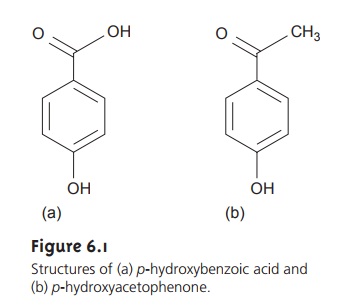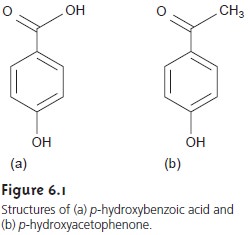Chapter: Modern Analytical Chemistry: Equilibrium Chemistry
Equilibrium Chemistry

Equilibrium
Chemistry
Regardless of the problem on which an analytical chemist is
working, its solution ultimately requires a knowledge of chemistry and the ability to reason with
that knowledge. For
example, an analytical chemist developing a method for
studying the effect
of pollution on spruce trees needs to know, or know where
to find, the
structural and chemical differences between p-hydroxybenzoic acid and p-hydroxyacetophenone, two common phenols
found in the needles of spruce trees (Figure 6.1).
Chemical reasoning is a product
of experience and is constructed from
knowledge acquired in the classroom, the laboratory, and the chemical literature.

The material in this text assumes familiarity with topics covered
in the courses and
laboratory work you
have already completed.
Related Topics